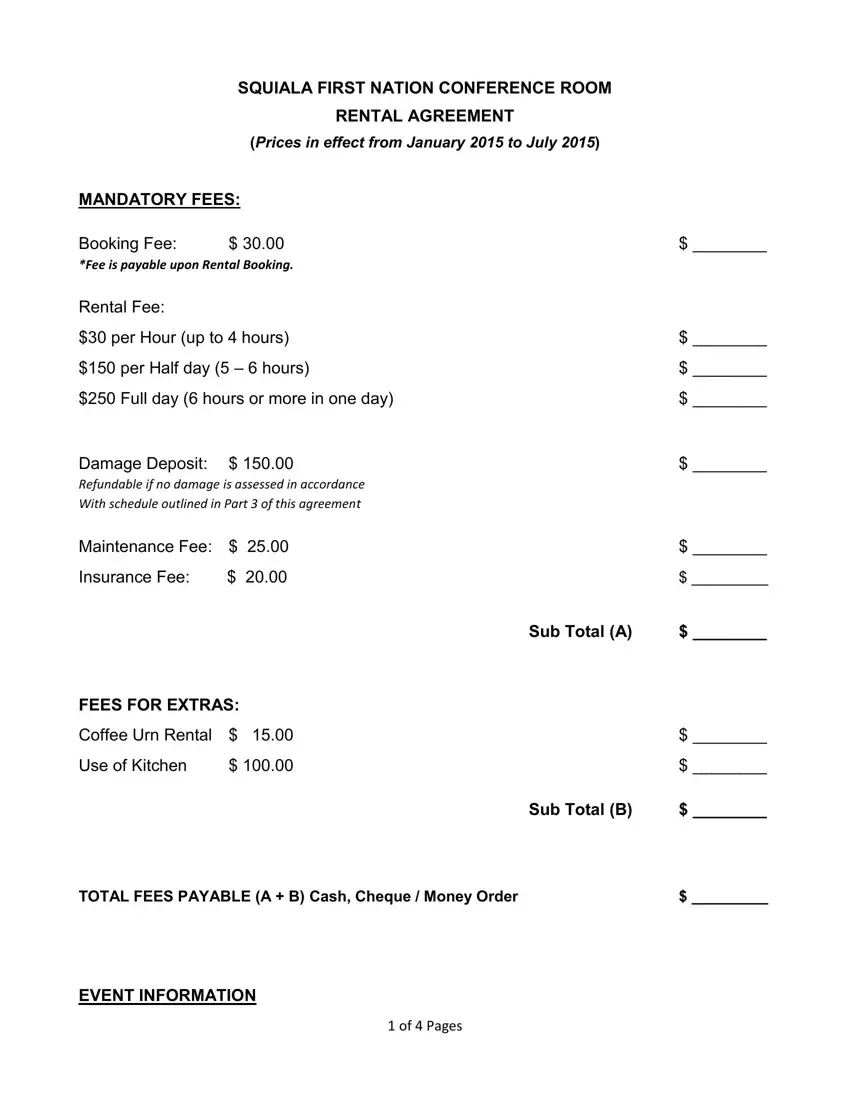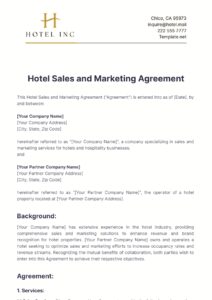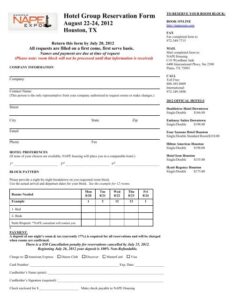Organizing a successful business meeting, conference, or special event requires meticulous planning and attention to detail. From coordinating schedules to managing guest lists, there are countless moving parts that need to align perfectly for everything to go off without a hitch. One crucial aspect that often gets overlooked, or perhaps not given the weight it deserves, is the formal agreement with your chosen venue.
This is where a robust and clear contract comes into play, serving as the backbone for your event’s success. It lays out all the expectations, responsibilities, and terms for both you and the hotel, preventing potential misunderstandings down the line. Having a well-structured agreement is not just about formality, it is about safeguarding your event and ensuring a smooth, stress-free experience for everyone involved.

Why a Solid Meeting Room Contract is Your Best Friend
When you are planning an event, big or small, at a hotel, a clear agreement is absolutely non-negotiable. Think of it as your blueprint for success, a detailed roadmap that outlines every single aspect of your booking. Without a comprehensive document, you are essentially relying on verbal agreements, which can be easily misinterpreted or forgotten, leading to costly disputes or disappointment during your event. A detailed contract protects both parties by explicitly stating what has been agreed upon, leaving no room for ambiguity.
These contracts usually cover a wide array of details, far beyond just the date and time. They delve into specifics about the room itself, the services provided, and the financial arrangements. It is the document that ensures everyone is on the same page, from the moment you make the booking until the last guest departs. Understanding its components is key to a successful event.
One of the first things a good contract will specify is the precise details of your booking. This includes the name of the meeting room or ballroom, the exact dates and times it will be available to you, and its agreed-upon capacity. It should also clarify any pre or post event access you might need for setup or breakdown. These initial points are foundational, ensuring there is no confusion about the core booking itself.
Beyond the physical space, a contract will also detail all the ancillary services you will be receiving. This might include audio visual equipment like projectors, screens, microphones, or sound systems, along with technical support. Catering arrangements are another huge component, outlining menus, serving times, special dietary requests, and beverage packages. Details about table setups, linens, and decor items should also be clearly documented to avoid any surprises.
Furthermore, a comprehensive contract will address the financial terms, including payment schedules, deposit requirements, and any applicable taxes or service charges. Crucially, it will also outline cancellation policies and any associated penalties, as well as force majeure clauses that address unforeseen circumstances. Liability for damages or theft, and insurance requirements, are also vital sections to review. Every single one of these elements contributes to the overall clarity and security of your event.
Essential Elements of Your Agreement
- Specific dates and times for room usage, including setup and breakdown periods.
- Detailed description of the meeting room or event space, including capacity.
- Itemized list of all included services such as audio visual equipment, catering, and staffing.
- Payment schedule, deposit requirements, and cancellation policies.
- Liability clauses and insurance requirements for both parties.
- Specific instructions for parking, internet access, and accessibility.
- Force majeure provisions for unexpected disruptions.
Crafting Your Perfect Hotel Meeting Room Contract Template
Finding a suitable hotel meeting room contract template is a fantastic starting point, but remember that every event and every hotel relationship is unique. While templates provide a solid framework, they are meant to be customized to fit your specific needs and the particular terms you negotiate with the hotel. Do not just sign a generic document; take the time to review it thoroughly and make sure it accurately reflects all your discussions and agreements.
When you are working with a template, think of it as a living document. You will want to personalize sections related to your event’s agenda, any unique technical requirements, and specific catering requests that might not be standard. Hotels often have their own standard contracts, but you should always feel empowered to request modifications or additions that are crucial for your event’s success and your peace of mind.
Before you finalize anything, have a detailed conversation with the hotel’s events team. Discuss every point, no matter how small it may seem. Clarify all costs, understand the cut-off dates for guest counts, and ensure you know exactly what is included and what might incur additional charges. A good hotel will be happy to walk you through their agreement and address any of your concerns, helping you tailor the hotel meeting room contract template to your exact specifications.
The goal is to eliminate any potential for confusion. By having a clear, mutually agreed-upon contract, both you and the hotel benefit from a shared understanding of expectations and responsibilities. This proactive approach ensures that your event runs as smoothly as possible, allowing you to focus on your guests and the purpose of your gathering, rather than worrying about logistical misunderstandings.
Ultimately, a carefully reviewed and customized agreement acts as a safeguard, providing a clear roadmap for a successful event. It ensures that the space is reserved as agreed, the services are delivered as expected, and the financial terms are transparent for everyone involved. This level of detail and foresight contributes significantly to a successful and memorable occasion, free from unexpected complications.

